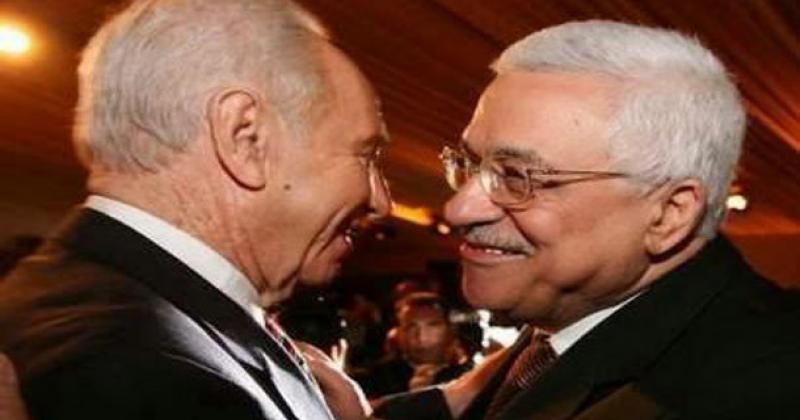Politics and spirituality do not always go hand in hand, not even in the quest for peace, but most certainly the religious aspect can summon unsuspected resources and cross what might appear as otherwise unsurmountable boundaries – as foreseen by Pope Francis when he extended his invitation to President Shimon Peres and President Mahmoud Abbas during his recent visit to Jerusalem.
Sunday’s prayer ceremony will see Israeli and Palestinian religious and political representatives praying side by side according to their faiths, along with nearly all the highest officials of Christian churches in the Holy Land, most of whom hold double responsibilities for their faithful in both Israeli and Palestinian territories, and some in Jordan as well.
Today’s political reality is that Israel will not return to peace negotiations with the Palestinian Authority because President Abbas' unity government now includes Hamas, which is inserted in the international list of terrorist organizations (even if the Palestinian "technocratic" coalition does not include ministers officially enrolled in Hamas). The new bone of contention and impasse is that Hamas, now an ally of the Palestinian Authority, will not accept the three conditions to which President Abbas, to the contrary, has offered guarantees: 1) recognition of Israel's right to exist 2) halting all operations of violence and terrorism 3) recognizing the validity of past peace agreements such as the Oslo accords. Resumption of peace talks also hinges on a change of heart by Hamas on these vital points, in line with commitments made by President Abbas.
The prayer, to be held in the Vatican gardens, is a totally unprecedented event. It will begin around 7:00pm Sunday. The late hour was chosen in order to give President Abbas time enough to attend the inauguration ceremony for Egypt's President Sisi Sunday morning in Cairo. Before prayers, Pope Francis will receive each national leader separately for private talks.
Another extraordinary aspect of this event is that both the Israeli and the Palestinian delegations will be multi-religious and will mingle their nationalities during the prayer services. Christians, Muslims and Jews from the separate delegations will leave their national groups and intermingle according to the three faiths. Thus Palestinian and Israeli Christians will pray together as will Palestinian and Israeli Muslims, in three separate locations!
The delegation from President Peres' office will include two Israeli Druze, two Israeli Muslims and two Israeli Christians. The Palestinian delegation also includes both Muslims and Christians.
The prayers are divided into three sections: 1) an invocation for thanksgiving, 2) a quest for forgiveness, and 3) prayers for peace in Jerusalem. Jews will offer psalms, along with other texts.
The Israeli delegation, around 15-18 people, will include three rabbis: Ratzon Arousi,(the most important Yemenite rabbi and Chief of the Rabbinical Council, Daniel Sperber (highly respected Professor of Talmud and recipient of the prestigious Israel Prize) and David Rosen (Honorary Advisor to Israel’s Grand Rabbinate and International Director for Interreligious Affairs of AJC – American Jewish Committee). The Grand Rabbinate’s director, Oded Wiener, will also participate. Italian Jewry will be represented by Josef Levi, Chief Rabbi of Florence. The Pope’s Argentinian friend, Rabbi Abraham Skorka will be present as well.
The Palestinian delegation of Muslim and Catholic religious and diplomatic representatives will be of equal size. Among others it will include Mahmoud Al Habbash, former Minister of Religious Affairs; Sheikh Jamal Abu Alhanoud of the Palestinian Sharia Courts; Ziad Al-Bandak, Minister for Christian Relations; Saib Arekat, head of the peace negotiations team, and the former Latin Patriarch of Jerusalem, Michel Sabbah.
The Orthodox Church’s Patriarch Bartholomew will be a guest of honor. His commitment to working for peace in the Middle East, to ecumenism and to interreligious dialogue is well known. In the context of his recent meeting in Jerusalem with Pope Francis to mark the 50th anniversary of Paul VI's reconciliation encounter with Patriarch Athenagoras, Bartholomew attended a lunch given in his honor by AJC’s Jerusalem office.
Rabbi David Rosen expressed to “Vatican Insider” his hopes that the event will be “the beginning of something even better”. He envisions possible future developments such as “a permanent council of local religious authorities (with international support) that could prepare a charter for interreligious coexistence in the Holy Land; a joint statement on Jerusalem; and religious institutions perhaps serving as support for political peace making.” In view of the thorny issue of the Palestinian Authority-Hamas unity government however, he foresees Israeli opinion will be only “skeptically positive” regarding political consequences, “though with great appreciation of Pope Francis’ goodwill.”
